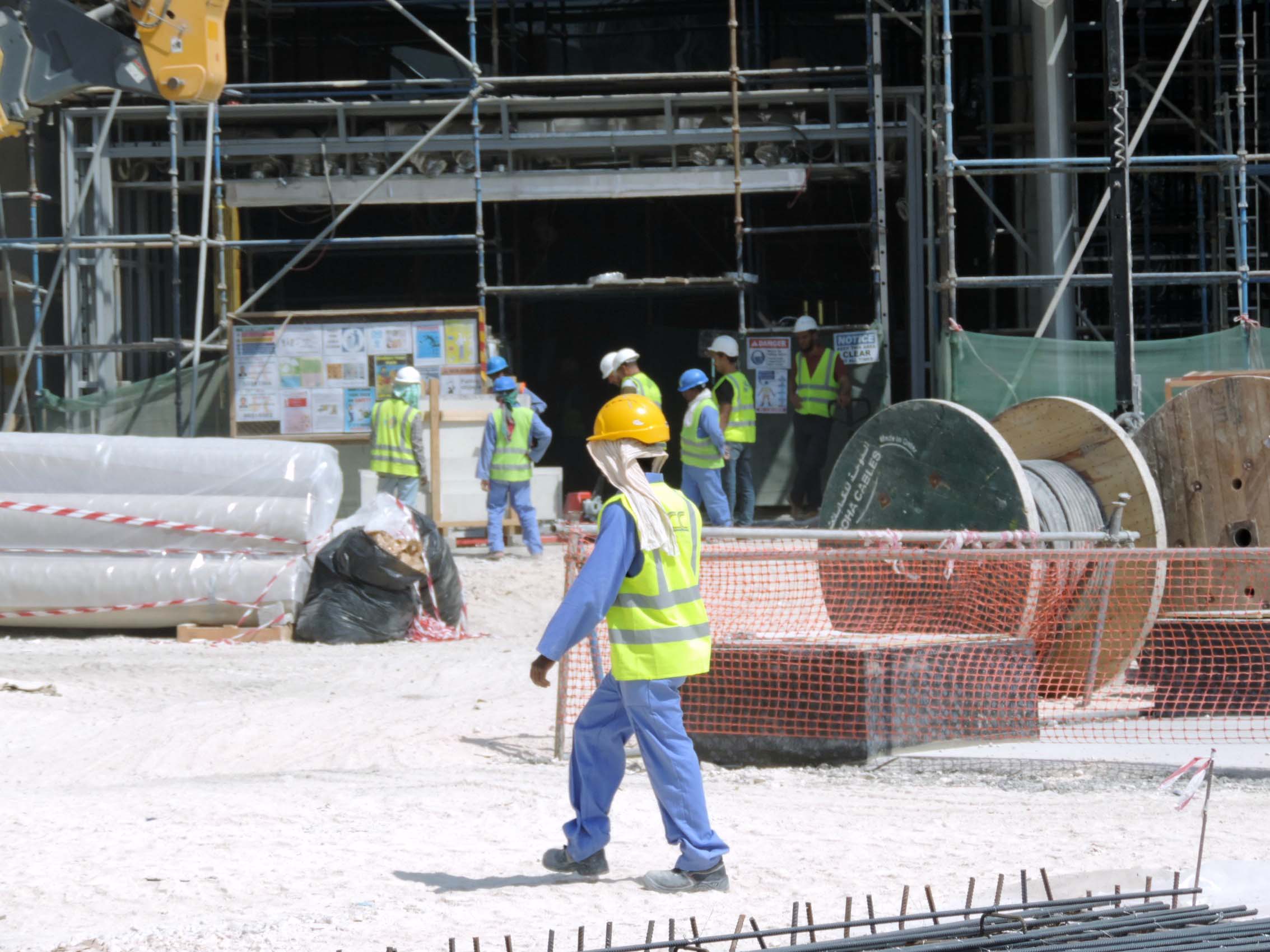
Work is underway on fitting out a new labor camp north of Doha that government officials hope will raise accommodation standards for blue-collar workers across the country.
The camp is in Umm Slal and will serve as a “home away from home” for some 24,000 men, management said.
When it is completed by the end of 2017, it will be the first of seven planned “integrated communities” across Qatar that will eventually accommodate a total of 179,000 low-income expats.
Described as a complete town containing mosques, medical buildings, laundry areas, catered dining halls and other amenities, the Umm Slal project will be constructed by three development teams, each of which were assigned a plot of land in December.

Officials said at the time that it hoped the new camps would allow expats to lead a “dignified life” and reduce the country’s dependence on older, decrepit labor camps that have been criticized by international human rights advocates.
The Umm Slal project hit a milestone late last month when Daruna Development – which is building on one of the plots with Gulf Systems – awarded a QR144 million contract to Saudi Arabia-headquartered Red Sea Housing Services Co. to construct housing for 4,000 tenants.
Speaking to Doha News this week, Daruna CEO Michael Murphy said:
“We are implementing the government’s vision to provide high-standard worker (housing) in the country.”
He estimated the total capital cost of the project to be QR200 million.
Demand
Murphy said approximately 40 percent of the 4,000 units have been pre-leased, primarily to construction firms. He declined to identify specific tenants.
The pre-leasing activity suggests that some companies in Qatar are willing to pay a premium to house their workers in modern accommodation with recreational amenities and clean dining facilities, which are absent from many older housing blocks.
Murphy declined to discuss the specific rates his company will charge clients, but government officials said in December that the monthly rent would be capped at QR650 per tenant.
Murphy told Doha News that the quality of the housing demanded by the government means prices have to be higher than some of the labor camps currently on the market.
However, several organizations – such as Qatar Foundation, Qatar Rail and the Supreme Committee for Delivery and Legacy – require their contractors to use housing that meets certain standards.
At the same time, new housing developments such as the recently opened Labor City are being constructed to meet this need.

The rent cap is also seen as one way of making these newer developments accessible to smaller firms.
Some observers have previously questioned whether Qatar’s most vulnerable expats would end up living in these new developments.
Critics have suggested that the companies willing and able to pay a premium to house their employees are most likely to be large firms that already treat their staff better than some smaller subcontractors or staffing firms.
The pre-leasing of the Umm Slal development also comes despite projections that demand for labor camps in Qatar will soon start to subside.
The facility will open around the time that government planners expect Qatar’s construction workforce to peak before declining off as the most labor-intensive stages of the country’s massive infrastructure building boom are completed.

However, Murphy said there would still be plenty of demand for Daruna’s housing.
“Even with the market tapering off, Qatar has just set a record for its population,” he noted.
The new government-planned housing units will theoretically only be able to accommodate a fraction of Qatar’s blue-collar workforce.
Government statistics show there were some 762,000 expat men working in construction and manufacturing in 2014. While not all are low-income workers, it’s still more than four times the number of individuals that can be housed in the government’s seven planned “integrated communities.”
Amenities
Murphy said the Umm Slal development will have retail space, a mosque, sports fields, laundry service and a kitchen serving three “culturally sensitive” meals a day.
“We treat our workers like guests,” he said. “It’s a home away from home for these workers.”

Last year, Daruna signed a contract with a technology firm for equipment that would allow the location of tenants to be electronically monitored.
Murphy told Doha News on Thursday that the system allows individuals to carry a single keycard to unlock their room as well as pay for small purchases, such as a haircut or snacks.
He said there were no restrictions on residents’ movement within the camps. “We don’t track the workers,” he said. “(They) are free to leave during their spare time.”
Daruna previously proposed a 6,000-bed development in Wukair.
However, Murphy said the company was unable to secure the required zoning changes as the government was encouraging private firms to participate in its integrated communities initiative rather than undertake their own projects.
Thoughts?







